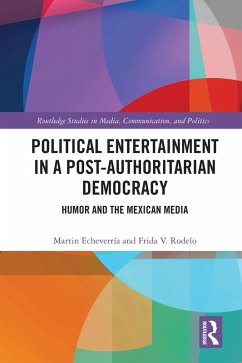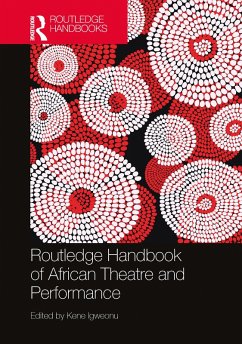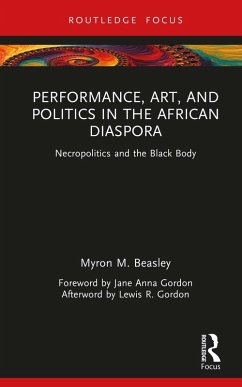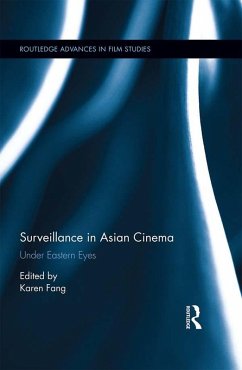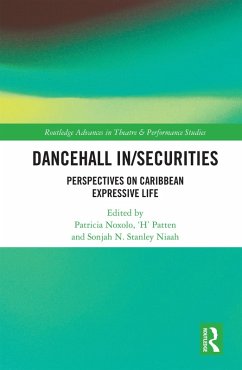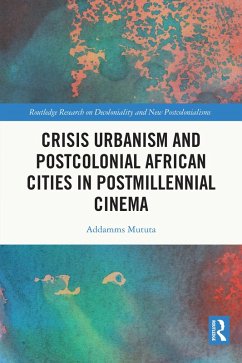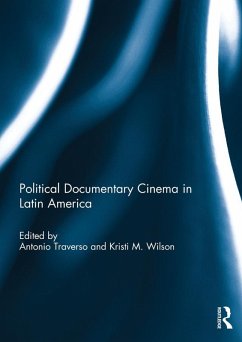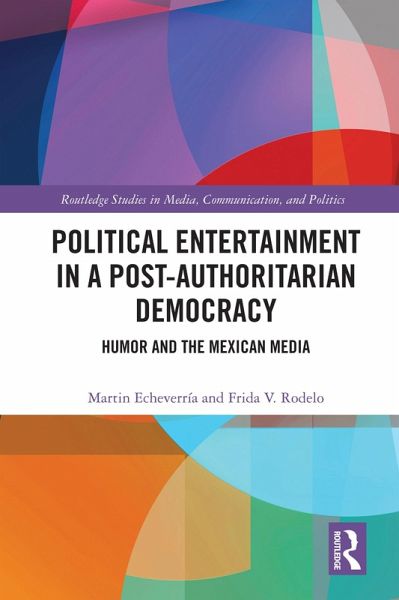
Political Entertainment in a Post-Authoritarian Democracy (eBook, ePUB)
Humor and the Mexican Media
Versandkostenfrei!
Sofort per Download lieferbar
39,95 €
inkl. MwSt.
Weitere Ausgaben:

PAYBACK Punkte
20 °P sammeln!
The book offers an analytical and empirical account of the specificities of political entertainment in post-authoritarian democracies.Centered around Mexico as a case study, the book explores the production of political entertainment in post-authoritarian legacy media and how political and economic conditions constrain the range and edge of discourse; how political entertainment in social media is shaped by the structure of platforms, as creators are encouraged to conform to specific norms such as constant publication; and the impacts of these media on attitude formation among the population. ...
The book offers an analytical and empirical account of the specificities of political entertainment in post-authoritarian democracies.
Centered around Mexico as a case study, the book explores the production of political entertainment in post-authoritarian legacy media and how political and economic conditions constrain the range and edge of discourse; how political entertainment in social media is shaped by the structure of platforms, as creators are encouraged to conform to specific norms such as constant publication; and the impacts of these media on attitude formation among the population. The book proposes a theoretical framework for identifying the specific conditions of post-authoritarian democracies that constrain the production of political entertainment, as well as its outcomes in terms of content and effects. This framework can be applied to the analysis of similar case studies, particularly in the Global South at large.
With an analysis drawing on hard data, historical accounts, and anecdotal evidence, this volume will resonate within academic communities interested in political communication, media studies, transitional democracies, and popular culture.
Centered around Mexico as a case study, the book explores the production of political entertainment in post-authoritarian legacy media and how political and economic conditions constrain the range and edge of discourse; how political entertainment in social media is shaped by the structure of platforms, as creators are encouraged to conform to specific norms such as constant publication; and the impacts of these media on attitude formation among the population. The book proposes a theoretical framework for identifying the specific conditions of post-authoritarian democracies that constrain the production of political entertainment, as well as its outcomes in terms of content and effects. This framework can be applied to the analysis of similar case studies, particularly in the Global South at large.
With an analysis drawing on hard data, historical accounts, and anecdotal evidence, this volume will resonate within academic communities interested in political communication, media studies, transitional democracies, and popular culture.
Dieser Download kann aus rechtlichen Gründen nur mit Rechnungsadresse in A, B, BG, CY, CZ, D, DK, EW, E, FIN, F, GR, HR, H, IRL, I, LT, L, LR, M, NL, PL, P, R, S, SLO, SK ausgeliefert werden.




